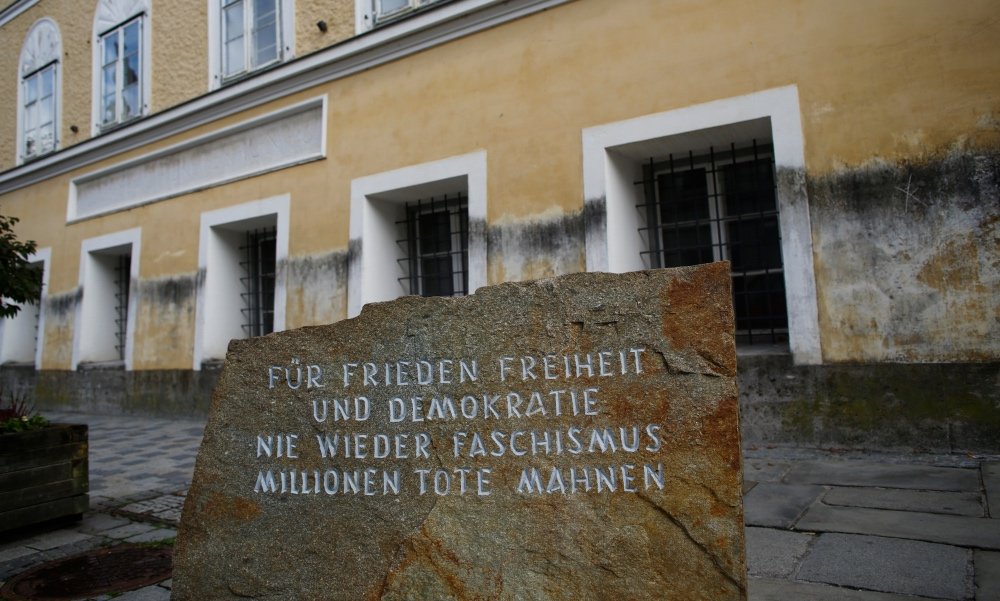As anti-racism protesters topple statues of slave traders and colonisers worldwide, some nations are pondering how to mark their dark past. In Austria, debate over confronting one link to Adolf Hitler has taken decades, and it’s not over yet.
Austria recently unveiled plans to convert the house where the Nazi leader was born, in the town of Braunau am Inn on the German border, into a police station.
It also suggested moving a rock that stands on the sidewalk outside, which is inscribed with an anti-fascist message, to a Vienna museum.
While many agree that the house should not be allowed to become a pilgrimage site for neo-Nazis, the idea of removing the rock has upset some Jewish and survivors’ groups who have said that Austria must confront its role in the Holocaust.
More consultations on the rock will now be held.
“Clearly [the government] wants to let the world forget that the worst mass murderer in history was born in Braunau,” said Willi Mernyi, head of the Mauthausen Committee, Austria’s main Holocaust survivors’ group.
“This approach is wrong…One must recognise what happened.”
The rock, which carries the inscriptions “fascism never again” and “millions of dead” but does not mention Hitler, was installed by the town in 1989.
At that point, Austria was moving away from its position of denying responsibility for the Holocaust, a post-war stance during which it described itself as the first victim of the Nazis.
Read the article by Francois Murphy (Reuters) in Sight Magazine.

